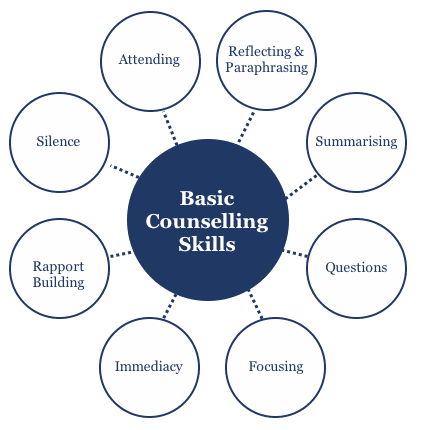A Comprehensive Guide to the Numerous Kinds of Therapy and Their Influence
Therapy encompasses a range of restorative approaches, each designed to satisfy one-of-a-kind mental health and wellness requirements. From the organized techniques of Cognitive-Behavioral Treatment to the understanding nature of Person-Centered Treatment, these methods provide distinct paths to personal development. Family treatment and Dialectical Behavior Therapy offer extra structures for healing, while team counseling cultivates community support. Comprehending these diverse methods can brighten their profound influence on specific health. What stays to be explored are the ins and outs of each technique.

Understanding Cognitive-Behavioral Therapy (CBT)
Although several restorative strategies exist, Cognitive-Behavioral Therapy (CBT) stands out due to its organized, goal-oriented nature. This form of therapy is based on the premise that ideas, feelings, and behaviors are interconnected, and by transforming negative idea patterns, individuals can change their emotional reactions and activities. CBT uses various strategies, such as cognitive restructuring, which helps customers recognize and test distorted ideas. Behavioral activation urges interaction in enjoyable tasks to combat clinical depression.
Usually, CBT is a temporary therapy, often lasting in between 12 to 20 sessions, making it obtainable for those looking for quick results. Its effectiveness has been well-documented in treating anxiety disorders, anxiety, and various other psychological health and wellness concerns. The therapist's function is to lead clients via exercises and research projects, promoting self-awareness and promoting long-lasting coping strategies. This sensible technique encourages individuals to take control of their psychological well-being, ultimately leading to enhanced life complete satisfaction.
Exploring Person-Centered Therapy
Person-Centered Treatment, created by Carl Rogers, supplies a different method to Cognitive-Behavioral Treatment by emphasizing the customer's subjective experience. This therapeutic version prioritizes the person's viewpoint, promoting an environment of empathy, unconditional positive regard, and credibility. By allowing customers to discover their sensations and ideas without judgment, therapists assist in individual development and self-discovery.
The core tenet of Person-Centered Therapy is the idea that people have the fundamental capability for self-healing and individual advancement. In this setup, the specialist works as an encouraging guide as opposed to a regulation authority, urging clients to take charge of their own trip. This method is especially effective for those coming to grips with problems such as reduced self-esteem, anxiousness, or anxiety, as it encourages them to confront and recognize their feelings. Ultimately, Person-Centered Treatment cultivates a solid healing partnership, fostering trust fund and openness essential for meaningful adjustment.
The Function of Family Treatment in Recovery
Family therapy serves as a crucial component in the healing process for individuals and their partnerships. This therapeutic method concentrates on enhancing communication, dealing with problems, and promoting deeper connections amongst member of the family. By resolving inefficient dynamics, family treatment motivates each participant to reveal their thoughts and feelings in a risk-free atmosphere, promoting understanding and compassion.

The influence of family therapy prolongs beyond the sessions, as improved connections can cause boosted emotional well-being for all entailed. Generally, household treatment plays an essential role in recovery by promoting unity, durability, and common support among relative, inevitably directing them towards a much healthier, more meeting life together.
Unpacking Dialectical Behavior Modification (DBT)
Structure on the structure of restorative strategies that improve emotional wellness, Dialectical Behavior modification (DBT) provides an organized framework for people dealing with intense emotions and behavior difficulties. Established by Marsha Linehan, DBT integrates cognitive-behavioral strategies with mindfulness practices, aiming to help clients take care of frustrating sensations and boost interpersonal effectiveness.
The treatment is particularly useful for those identified with Borderline Personality Problem yet is additionally relevant to a variety of other psychological health and wellness concerns. low cost therapy. DBT consists of individual treatment sessions and abilities training teams, focusing on 4 vital capability: mindfulness, distress resistance, feeling regulation, and interpersonal efficiency
The Benefits of Team Coaching Procedure
While private treatment gives useful understandings, team therapy sessions supply distinct benefits that can considerably boost the therapeutic experience. One vital advantage is the sense of neighborhood that emerges amongst individuals. People typically find comfort in sharing their experiences with others facing similar obstacles, cultivating a supportive atmosphere that decreases feelings of isolation.
Additionally, group sessions motivate diverse viewpoints, permitting individuals to pick up from each various other's coping methods and insights. This cumulative wisdom can cause boosted problem-solving capacities and a wider understanding of personal issues.
Additionally, team therapy usually advertises liability, as participants inspire each other to seek their objectives and adhere to their dedications. The cost-effectiveness of team therapy makes it an available choice for numerous people seeking support. Overall, the joint nature of team therapy sessions can considerably improve the restorative trip.
Often Asked Inquiries
What Credentials Do Therapists Required to Exercise Therapy?
Therapists commonly call for a pertinent level in psychology or therapy, in addition to monitored scientific experience. Furthermore, they need to acquire ideal licensure or qualification to practice legally, guaranteeing adherence to specialist criteria and ethical guidelines.
Just how Do I Select the Right Kind of Therapy for Me?
Picking the appropriate kind of therapy includes examining personal requirements, checking out different techniques, thinking about specialist specialties, and looking for recommendations. Understanding individual objectives and preferences can considerably enhance the efficiency and fulfillment of the therapeutic experience.

Are Online Counseling Procedure as Effective as In-Person Ones?
The performance of on the internet therapy sessions compared to in-person ones usually relies on specific preferences and situations. Research study shows that both approaches can produce positive results, though some might find better convenience in face-to-face communications.
How Much Time Does Counseling Normally Last?

What Should I Expect Throughout My Initial Counseling Session?
During the first counseling session, clients can anticipate an intro, conversation of their worries, establishment of goals, and an overview of the therapy process - virtual therapy. This first meeting intends to develop rapport and warranty convenience